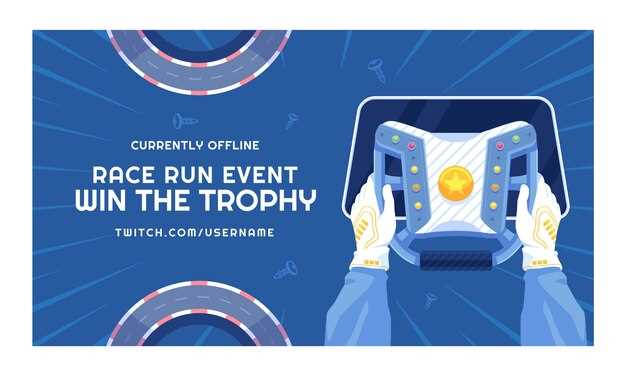

In the high-octane world of racing, sponsorship plays a crucial role in the financial ecosystem that sustains teams, drivers, and events. The intricate relationship between finance and motorsport sponsorship is essential for the continued success and growth of the industry. Understanding the dynamics of these sponsorship arrangements can provide valuable insights into the broader implications for both corporate partners and racing entities.
At its core, motorsport sponsorship involves a complex interplay of brand visibility, marketing strategies, and financial investment. Companies invest in racing teams not only to enhance their brand image but also to engage with a passionate and dedicated audience. This relationship hinges on the ability of teams to deliver promising results on the track, which, in turn, can translate into substantial financial returns for sponsors.
Moreover, as the landscape of motorsport evolves, so too do the expectations of sponsors. Brands are increasingly looking for innovative ways to maximize their return on investment, leveraging social media, digital platforms, and experiential marketing to connect with fans. This shift presents both challenges and opportunities for racing teams as they navigate the financial intricacies of securing and maintaining sponsorships in a competitive environment.
Identifying Key Metrics for Sponsorship Success in Racing
To ensure the effectiveness of sponsorship investments in racing, it is essential to identify and measure key metrics that demonstrate return on investment (ROI) and overall impact. The following metrics play a crucial role in understanding the success of sponsorship agreements in motorsport.
Brand Awareness: One of the primary goals of any sponsorship is to increase visibility and recognition of the brand. Metrics such as social media reach, impressions during televised events, and website traffic spikes around race weekends provide insights into how well a brand is resonating with the audience.
Audience Engagement: Analyzing fan engagement metrics, including social media interactions, attendance numbers, and online discussions, can help sponsors gauge their connection with the racing community. Higher engagement often translates to a stronger emotional bond with the audience, enhancing the value of the sponsorship.
Sales Influence: Understanding how sponsorship impacts sales is crucial for evaluating financial success. Tracking sales data in correlation with racing events can highlight changes in purchasing behavior. Metrics such as pre- and post-race sales figures and promotional performance can provide actionable insights into the effectiveness of the sponsorship.
Media Exposure Value: Quantifying the media exposure generated by a sponsorship deal is vital. This includes calculating the equivalent advertising value (EAV) of brand placements during race broadcasts, print media, and online articles, which can demonstrate the financial impact of sponsorship in terms of traditional advertising costs.
Customer Acquisition Cost: Estimating the cost of acquiring new customers through racing sponsorships is another important metric. This involves analyzing new customer data to determine how many new clients were influenced by the brand’s presence in the racing space. A lower customer acquisition cost indicates a more effective sponsorship strategy.
Fan Demographics: Understanding the demographics of race fans can help sponsors tailor their message and offerings. Metrics such as age, gender, and geographic location provide insights into the audience that interacts with the brand, allowing for more targeted marketing efforts.
By tracking these key metrics, sponsors can effectively measure their success in the racing domain. This data not only provides a clear picture of the financial impact of the sponsorship but also helps inform future strategies to maximize their investment in this highly competitive environment.
Leveraging Data Analytics to Enhance Sponsorship Strategies

In today’s competitive motorsport environment, data analytics has emerged as a pivotal tool for refining sponsorship strategies. By harnessing various types of data, organizations can significantly enhance their financial returns and brand visibility.
Data analytics offers insights into key performance indicators (KPIs) that can drive successful sponsorships. Here are several ways in which data-driven strategies can optimize sponsorship outcomes:
- Audience Insights: Understanding demographics, preferences, and behaviors of the fan base can aid sponsors in targeting their marketing efforts effectively.
- Performance Measurement: Analytics tools can track the performance of sponsorships, measuring visibility through social media engagement, TV ratings, and in-event branding exposure.
- Return on Investment (ROI) Analysis: Incorporating financial metrics allows for a comprehensive evaluation of sponsorship effectiveness, ensuring resources are allocated to the most lucrative partnerships.
- Predictive Modeling: By analyzing historical data, organizations can forecast future trends, helping sponsors make informed decisions regarding investment and partnership longevity.
Furthermore, leveraging data analytics aids in the negotiation process. By presenting solid evidence of expected financial returns and audience engagement, both sponsors and rights holders can establish more equitable agreements. This data-driven approach fosters a collaborative environment that benefits all parties involved.
In summary, the integration of data analytics into sponsorship strategies not only enhances financial outcomes but also strengthens brand loyalty and engagement among fans. Progressive organizations are recognizing the value of analytics as a fundamental element of their sponsorship frameworks.
Navigating Financial Agreements in Motorsport Sponsorship Deals

In the high-stakes world of motorsport, financial agreements play a pivotal role in shaping the relationships between racing teams and their sponsors. These contracts are not merely transactional; they represent a strategic alliance that can drive significant value for both parties involved. Understanding the nuances of these financial agreements is crucial for maximizing the benefits of sponsorship deals.
When negotiating sponsorship contracts, it is essential to clearly define the financial contributions expected from sponsors. This typically includes direct monetary investments, but can also encompass in-kind support such as the provision of equipment, technology, or services. The structure of these contributions may vary, ranging from one-time payments to long-term commitments, with additional performance-based incentives that align sponsor interests with racing success.
Another critical aspect of these agreements is the return on investment (ROI) for sponsors. Brands want assurances that their financial outlay will translate into increased visibility and market penetration. Consequently, it is vital to incorporate measurable KPIs within the contract terms, such as television exposure data, social media engagement metrics, and on-site brand activations, providing tangible results that can validate the sponsorship’s effectiveness.
Additionally, the distribution of intellectual property rights must be addressed in financial agreements. Sponsors often seek the right to utilize team branding, logos, and driver images to enhance their marketing efforts. Clearly outlining the scope of these rights and any associated costs is critical to avoid future disputes and ensure both parties understand their entitlements.
Furthermore, considering the potential for liabilities is essential when navigating these financial arrangements. Sponsorship deals should include clauses that protect both parties from unforeseen circumstances, such as changes in regulations or incidents on the track that could impact brand reputation. This risk management aspect is vital in ensuring long-term stability in the partnership.
Ultimately, successful navigation of financial agreements in motorsport sponsorship deals requires transparency, foresight, and a thorough understanding of both the racing landscape and the sponsor’s objectives. By establishing a solid foundation through well-crafted contracts, teams and sponsors can work collaboratively to drive performance and achieve mutual success in the competitive arena of motorsport.







